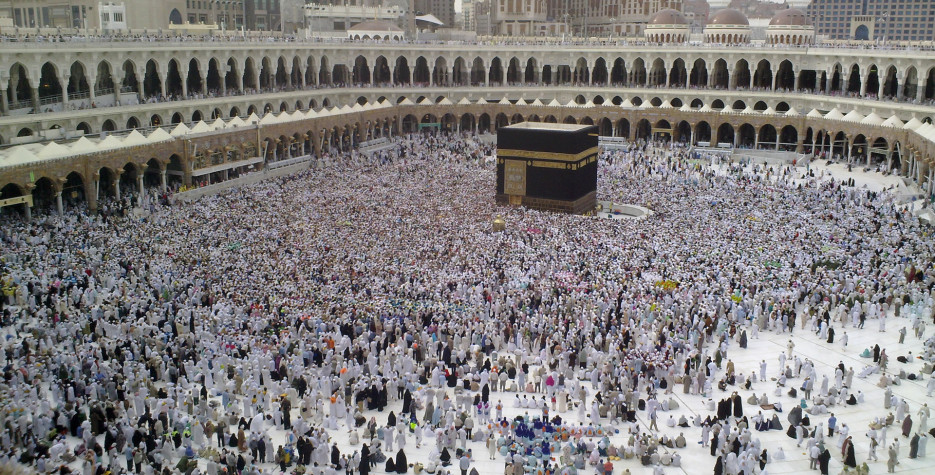When is Arafat Day?
Arafat Day is the second day of the Hajj 🕋 pilgrimage and is the day before the first day of the major Islamic Holiday of Eid ul-Adha.
Arafat Day falls on the 9th day of Dhu al-Hijjah, the twelfth and final month in the Islamic calendar.
As the exact day is based on lunar sightings, the date may vary between countries.
Traditions of Arafat Day
At dawn on Arafat Day, Muslim pilgrims will make their way from Mina to a nearby hillside and plain called Mount Arafat and the Plain of Arafah. It was here that Muhammad gave his Farewell Sermon in 632 CE.
The Hajj is the annual Islamic pilgrimage to Mecca. This pilgrimage is a mandatory religious duty for Muslims that must be carried out at least once in their lifetime by all who are physically and financially capable of undertaking the journey. The state of being capable of performing the Hajj is called istita'ah, and a Muslim who fulfils this condition is called a mustati.
Usually attracting over two million people from around the world, the Hajj is considered the largest annual gathering of people in the world.
Haj in COVID-19 times
In 2021, due to coronavirus, Saudi authorities curtailed the once-in-a-lifetime experience to only 60,000 worshippers already present in the country. In 2020, the Hajj was limited to just 10,000 local residents in order to maintain social distancing.
The Quran tells of how God asked the prophet, Ibrahim, to sacrifice his son as a test of his faith. As the prophet prepared to submit to God's will, the devil tried to dissuade him and the prophet Ibrahim threw rocks at the devil. This act is repeated by pilgrims at Hajj who throw stones at symbolic pillars.
Part of Hajj is being seen as equal in the eyes of God. All men wear two pieces of white sheets so that all the attendee’s wealth and social status are the same. Women's clothing is less restrictive, but they must wear white and they can only show their hands and feet.
Unlike other Islamic rites, there is no gender segregation at Hajj. Men and women are permitted to stand side by side. During Hajj, pilgrims are not encouraged to be fasting because they will need their full energy and capacity for the worship of Hajj.
Full list of Eid al-Adha holidays by day
Eid al-Adha concludes the Pilgrimage to Mecca. Eid al-Adha lasts for three days and commemorates Ibraham's (Abraham) willingness to obey God by sacrificing his son.


